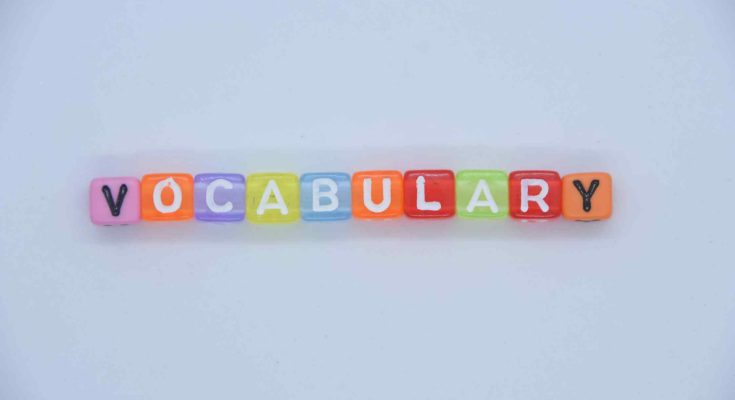Mastering a language involves several aspects, but none so crucial as vocabulary. Having a well-rounded vocabulary not only ensures effective communication but also makes comprehending complex texts easier. And that’s not all, it also allows you to express your thoughts with precision and succeed in various academic and professional endeavors. However, learning and retaining words can be challenging at times, necessitating active engagement and creative strategies. That’s where word games come into play – quite literally! In this article, we’ll explore how these games boost vocabulary enhancement by discussing their significance in vocabulary development. We’ll also look into various types of word games along with their benefits.
Understanding Vocabulary Development
Before we proceed any further, let’s first understand how vocabulary works. Vocabulary development involves learning and remembering words, their meanings, as well as their proper usage on different occasions. It is split into two: receptive vocabulary (words you can understand when used) and expressive vocabulary (words you can use in your speech or writing).
Challenges Faced in Vocabulary Acquisition
Here are some common challenges people face when trying to acquire new words:
Volume: Learning thousands upon thousands of English words alone is understandably daunting.
Retention: Without relearning them from time to time, it can be difficult to remember newly acquired words over time.
Contextual understanding: Understanding how to use certain words in different contexts calls for practice and exposure.
Motivation: Keeping up the motivation long enough for continuous learning can be an uphill task.
Word Games To The Rescue!
With those challenges out there on the table, let’s now look at how word games help make things easier. Word games spice up things significantly by creating an engaging atmosphere that promotes active participation among learners. By making vocabulary acquisition fun-filled and rewarding through elements like competition and problem-solving, they make it easier for learners to master more words effortlessly.
Benefits of Playing Word Games
Here are some of the advantages word games offer when it comes to vocabulary enhancement:
Active Engagement: Unlike passive learning methods, word games require active participation from players. This promotes better retention.
Contextual Learning: Word games require players to use words in specific contexts or solve puzzles – this helps them understand how words are meant to be used and appreciated.
Variety: From crosswords to word searches to association games, there’s a lot to choose from as per your preference and proficiency level.
Motivation: The competitive nature of most word games pushes players into expanding their vocabulary so they can up their performance levels.
Creativity: In an attempt to come up with words that fit the given criteria, players get to explore different combinations, which ultimately helps in widening vocabulary boundaries.
Social Interaction: When played in groups, word games foster social interaction between the parties involved. Players can also take collaborative approaches on certain occasions.
Types of Word Games
Word games come in various forms, each targeting different aspects of vocabulary development. Here are a few popular ones:
1. Crossword Puzzles
In crossword puzzles, you’re handed a grid of boxes where you’re supposed to fill words based on certain clues provided. Most often than not, these clues will revolve around synonyms, antonyms or even meanings. And since you have quite limited space available for every entry you make into your puzzle, coming up with the right answers becomes quite challenging. But that is exactly what makes this game such an excellent brain exercise!
2. Scrabble
Ask anyone if they know any word game apart from scrabble, chances are their answer will be no! That goes without saying how popular this game is across the globe. In scrabble, players have letter tiles at their disposal and must form words using them before placing them on a board game for scoring purposes. What makes things interesting though is that you’re not only trying to create as many words as possible but also to maximize your points.
3. Word Search
In word searches, players must locate hidden words within a grid of letters. These words can be lined up horizontally, vertically, or diagonally. Players will have to dig deep into their brains in order to pull out the right word from an assortment of letters.
4. Word Association Games
In this particular game you’ll be asked to connect two words based on their similarities or relation. One player will say one word and the next player has to come up with a response word that is related in some way. This will test your ability to think about words in different ways and expand your vocabulary through association.
5. Vocabulary Building Apps
With technology as advanced as it has gotten today it’s no wonder there are so many apps available for building vocabulary. I’m talking anywhere from quizzes all the way up to progress tracking and everything in between. There is something for everyone when it comes to learning new things through games.
Strategies for Maximizing Vocabulary Development Through Word Games
Here are a few strategies you could try implementing if you’re looking to get the most out of your time spent playing word games:
1. Consistent Practice
Just like with anything else, practice makes perfect! It’s important that you set aside time each day or week specifically dedicated towards playing these types of games and reinforcing all the new things you’ve learned.
2. Targeted Learning
There is really no need for us to dedicate time memorizing words we will never use! That being said, focus on specific areas that pertain directly towards what you’re wanting to learn or master in general. Choose games that push your brain into expanding its knowledge in those areas.
3. Use Contextual Clues
Whenever we see a word used within one context, our brain automatically ties it back there whenever we see it again later down the road (not always but most times). By understanding how certain words are used inside these games, it will make it that much easier for you to recognize them when they’re used in everyday life, and apply them correctly and accurately.
4. Collaborate with Others
They always say two heads are better than one! So why not give collaboration a try? You could choose to play multiplayer games or even compete against friends or peers in word game competitions. Not only will this boost motivation but it’s also the perfect opportunity for constructive feedback.
5. Reflect and Review
It’s not enough to simply learn a new word, we have to use it, practice it, and repeat it as many times as we can before we truly make it our own. After playing a round of any word game, take time out of your day to reflect on all the new words you’ve stumbled upon and then review their meanings and usage in a sentence. Once you think you’ve got them down pat, try incorporating these words into your everyday vocabulary through practice and repetition.
Read More: The Cognitive Benefits of Playing Word Games Regularly
Conclusion
When learning something as complex as language I feel like mixing up our approach with interactive games like word puzzles is essential! These types of games cater towards people who may have different learning styles than those around them (which is totally okay)!
If you’re someone who likes to get hands-on while still having fun along the way then I highly suggest giving this method a shot. It doesn’t matter if you’re just trying to freshen up on your current skills or starting from scratch, incorporating word games into your routine has proven over time that anyone using them will see significant improvement. So find yourself a crossword puzzle today, ask a friend if they want to play Scrabble tomorrow night after work, maybe even explore some apps on your phone, regardless of how you do it just make sure you start right away!




